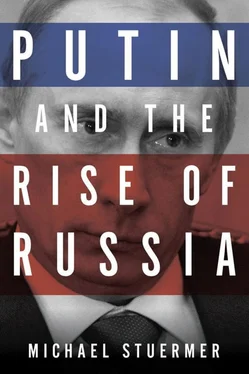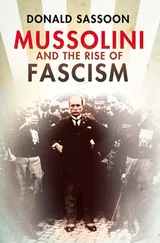Big powers need big enemies, and superpowers deserve a superpower on the other side. The greater the enemy, the greater the glory of standing up to him. Only America qualifies, for better or for worse, as a worthy antagonist. But while the US is part of the new Great Game, Britain, yesterday’s great power, serves as the focus of Kremlin wrath. The bitterness seems to have started with oligarch Berezovsky narrowly escaping, with most of his money, Russian rough justice and receiving British citizenship. The Litvinenko murder in 2006 created acrimony and uncertainty. It was meant to remain a perfect enigma and a threat to any future defector. But it pointed the finger at unidentified agents who can obtain polonium-210, certainly a deadly poison not to be bought in the drugstore round the corner but available only to state agencies. The Russians refused to hand over the main suspect, Andrei Lugovoy, and added insult to injury by first harassing British embassy personnel in every conceivable way and then forcing the British Council to close down its operations, especially language teaching in St Petersburg and Yekaterinburg. This was an unfriendly act by any standard and sent a message of some significance: we do not care about the outside world.
The creation of a new identity from the top down is both a substitute for Soviet ideology, too absurd to resurrect, and the domestic reflection of an ongoing quest to define Russia’s place in the world and its posture among the great powers of today and tomorrow. Russia is being presented to its denizens as the new promised land. The West, a model to be emulated during the early Yeltsin years, has lost its shine among both the people and the policy-makers.
China is too alien, too threatening, too vast to be an alternative model – notwithstanding the positive noises accompanying every meeting of the Shanghai Cooperation Organization, joint military manoeuvres with China’s People’s Liberation Army and the growing sales of technology and military hardware. To most Russians, the generals included, China is a brooding presence and too close for comfort. Rumour has it that more than five million Chinese have settled in Siberia, not much less than the remaining Russians. In Moscow’s foreign policy think tanks China is praised as a potential ally against the US, but in cultural terms China is worlds apart. When Russians consider countries to travel to, or settle in, their thoughts turn to Italy, Spain or the peaceful villages around the lakes of Upper Bavaria, or the mild climate of Baden-Baden in the Upper Rhine valley. When Russians look for cultural role models, they choose Italian fashion, French cuisine, German cars and Japanese electronic toys. China is an ally not of choice, but of necessity.
For the time being, China serves as a counterweight to the dominance of the United States but, as they say, only a diamond is forever. The Kremlin’s rulers must surely be aware of the unlimited potential for conflict over Siberia and the Far East: all the people and no resources on the Chinese side, all the resources and no people on the Russian side of the divide. The Shanghai Cooperation Organization, bridging the gap, serves both sides, but in the long run Russians will look to Europe and the US to find their elective affinities.
Even after the loss of most of Central Asia, Ukraine and White Russia, the Kremlin still rules over a country of vast proportions, its more than eighty different entities stretching across eleven time zones from Kaliningrad Oblast in the west to Vladivostok in the Far East, bordering on the Pacific, the White Sea in the north, the Baltic Sea and the Black Sea, a country of vast Eurasian dimension and ambiguity. It is indeed a continent in all but name, with brutal contradictions not only in climate and demography but also in geopolitical terms. There exist vast differences between Russia west of the Urals and Russia east of the Urals, and thanks to China’s ever-growing presence and mounting pressure they are bound to become more marked with time.
The West should not expect a coherent foreign policy on the part of Russia. There is a basic philosophy, but no comprehensive system of thought, as in the time of the world revolution, only a multitude of political influences, manoeuvres and methods, and the usual divide between short-term convenience and long-term strategy. And anyway, given Russia’s diversity in time and space, why should Russian foreign policy be any more coherent than that of the US? Even during Soviet times, Moscow would act in one direction today, in the opposite direction tomorrow, uninhibited by too much theory.
Under Bush ‘Together where we can, alone where we must’ was forged into the slogan, rather frightening for the Europeans and many others around the globe: ‘Allies, not alliances.’ World order courtesy of the United States? Yes, up to a point. Non-proliferation of weapons of mass destruction is a strategic dimension where the US, like it or not, still has to cooperate and even invite others to do the heavy diplomatic lifting. But for the rest, America wants to go it alone. If it is not isolationism that is beckoning, the name of the game is certainly unilateralism.
Why should Russia be more cooperative? Or more predictable? And why should the Kremlin be blamed for mirror-imaging much of America’s newly invented splendid isolation? A ‘lonely wolf’, this is how Kremlin insiders describe, in a metaphor both heroic and frightening, the role they ascribe to Russia in the early twenty-first century. As long as the wolf does not succumb to self-pity and aggression, is well fed, morally reassured and happy with itself, and in control of ever-increasing oil income, the Kremlin can afford such a policy. But to have no friends comes at a price.
The geopolitical challenges are indeed as vast and as contradictory as the Russian landmass. Moreover, their imperial past has bequeathed to Russians an inheritance of huge, almost uncontrollable problems. They range from the ominous presence of China, with ten times the population of the Russian federation, rising and rising over the Eastern perimeter fence at the rivers Amur and Ussuri, to the southern regions under the white peaks of the Caucasus mountains. For many centuries, the Tsar’s generals viewed these southern expanses with concern as the empire’s soft underbelly, threatened by British imperial expansion and, in more recent times, by US big business looking for natural resources.
For the time being and well into the future the most pressing threat, however, comes from the cohorts, assassins and, in the not too distant future, weapons of mass destruction sent out by militant Islam: this is a fear that hates to give its name. Putin avoids referring to militant Islam when talking about the dangers of terrorism, but from Afghanistan to the trauma of the Chechen wars and the terror scenarios that have unfolded since, Russians are very much aware of a looming threat. This was, after all, the psychology that helped Putin turn around the electorate in 1999 and win his first presidential term. There is more political mileage in the fear of radical Islam – but it has to be handled with care.
In the south-east, there is Turkey, and many a church spire built in the nineteenth century in Moscow, St Petersburg and elsewhere shows the crosses of Russian Orthodoxy piercing the crescent moon of Islam to celebrate victories past and future. Turkey, although a NATO member of long standing, is for Russia more and more a partner, whether it be as a consumer of Russian energy or a contractor for large-scale building. Turkey’s secular model of state and society also helps to reassure the Kremlin about the future of Muslims holding a passport adorned with the double-headed eagle.
Читать дальше











